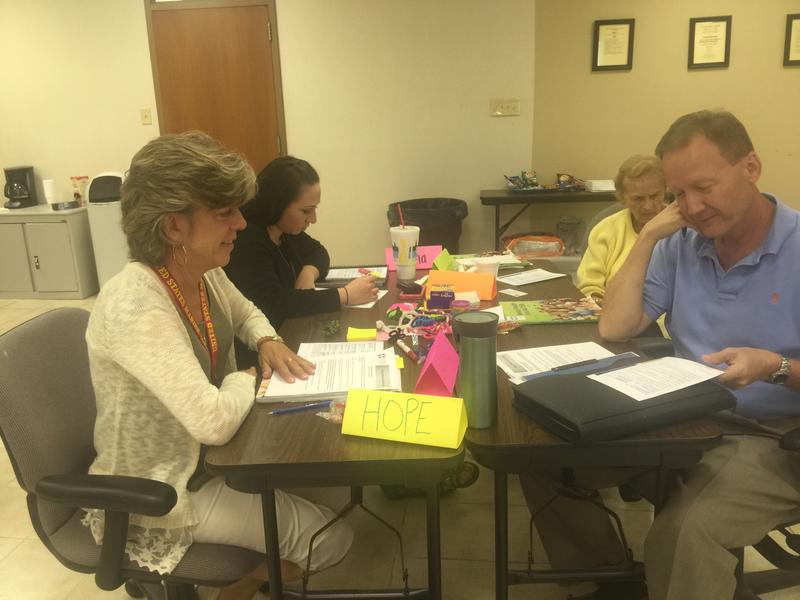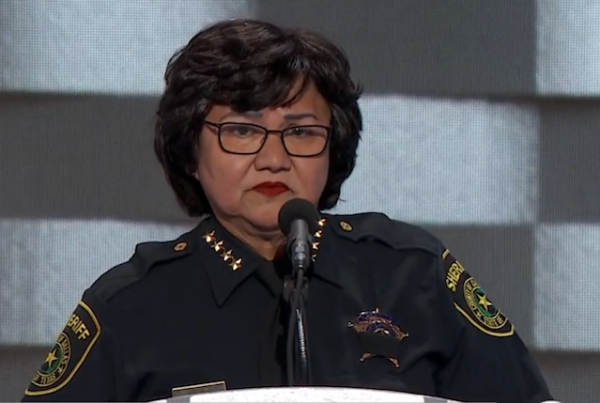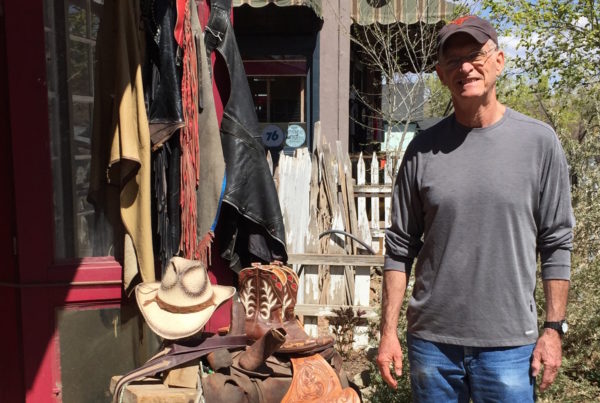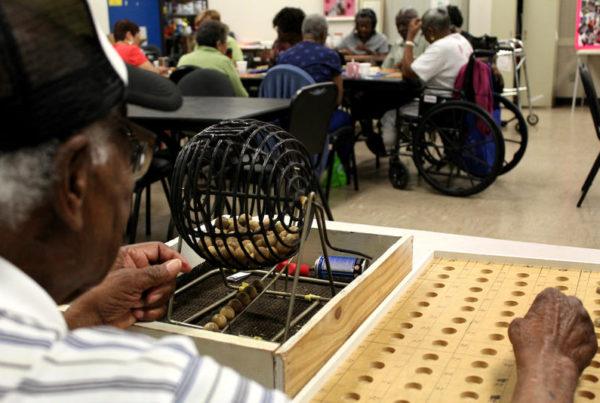From Texas Public Radio:
More than half a million Americans are getting trained through a course teaching them how to cope with people in a mental health crisis. Instructors are tackling a prevalent problem with an oversized stigma.
If someone, even a stranger, is bleeding or fainting or having a heart attack, most people try to help. But what if you encounter a person experiencing a mental health crisis? Would you know what to do? Answering that question is the goal of Mental Health First Aid, a course that teaches how to recognize the signs of a panic attack, or a psychotic break, a suicide threat, and how to assist until appropriate help arrives.
“What I like about it is that it is basic. It’s simple,” said Kim Olden of Kerrville’s Mental Health and Developmental Disabilities Center. “It really works to reduce the stigma that surrounds mental health.”
Olden is one of the instructors who teaches the two-day course to people like high school math teacher Karen McGuff of Leakey.
“We have a lot of issues with our changing society,” McGuff commented. “Drug use by students and their parents. Their drug use affects their mental health.”
Social worker Shelby Scwhing works at Peterson Regional Medical Center in Kerrville, often dealing with emergency room patients suffering drug overdoses or suicide attempts.
She explained some of the tactics she learned in the Mental Health First Aid course. “First you need to assess the risk, see if they’re actually suicidal, or if there’s something else going on,” Schwing said. “Then you might want to just listen to what they have to say. And you’ll learn a lot from that. Respect is the main thing. When you go into a room, if you respect the person where they’re at, that’s when you’re going to find out what’s really going on.”
Those who take the course are youth ministers, social workers, nurses, teachers and police officers. They get practical information they can apply professionally and personally.
They ask tough questions like “If they refer to themselves as an addict or an alcoholic…do you refer back to them like that when you’re having a conversation?” and “I’m walking down the hall and a psychotic person comes out of the door and attacks me. What do you do?”
While the instructors certainly don’t have all the answers, they have good advice for common crisis issues. Advice like “Do not touch them without permission, again because of the tactile hallucinations that we talked about” and “a person who is depressed and using alcohol has a much higher risk of suicide and self injury.”

















